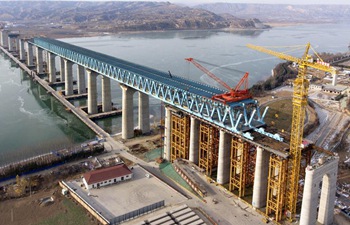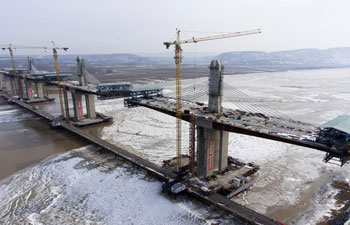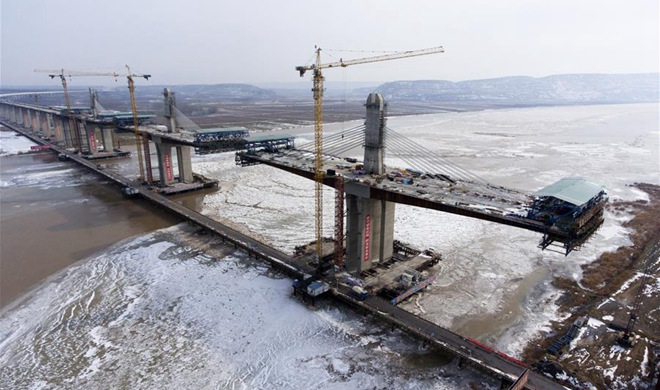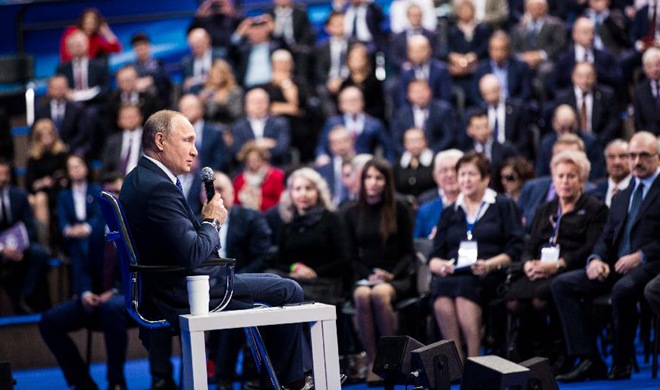BRUSSELS, Jan. 30 (Xinhua) -- The eurozone economy expanded at its most rapid rate in a decade, underlining Europe's roaring economic recovery, official data showed on Tuesday.
The gross domestic product (GDP) of the 19-country single currency area expanded by 2.5 percent in 2017, the fastest growth rate since a 3 percent rise in 2007, the year before the outbreak of the global financial crisis, according to the European Union's (EU) statistics agency Eurostat.
In the wider 28-member EU, the growth rate in 2017 also stood at 2.5 percent.
"Economic growth has shifted to a substantially faster growth path over the course of 2017, and current GDP data confirms that," said Bert Colijn, an economist at ING bank.
"Investment has yet to fully recover from the crisis but has been an essential contributor to growth during the year," he added.
The latest data also showed that the eurozone's economic growth continued at a healthy pace in the fourth quarter. The preliminary flash estimate showed that its economy expanded by 0.6 percent quarter-on-quarter during the last three months of 2017.
The figure is in line with the consensus expectation but slightly lower than the 0.7 percent recorded in the previous quarter.
"While there is no detail in this release, the breakdown for France suggests that growth was broad-based," said Stephen Brown, a European economist at Capital Economics.
France's statistics institute, Insee, said Tuesday that in the final three months of 2017, France's economy expanded by 0.6 percent.
French data also showed that net exports contributed significantly to growth as well, thanks to the pickup in global growth, Colijn said.
A separate release on the day showed that economic sentiment experienced a surprising dip in January but still remained at an "exuberant" level.
According to the European Commission, the Economic Sentiment Indicator (ESI) decreased slightly in January from its 17-year high in both the eurozone and the EU.
"Eurozone GDP growth continued at a healthy pace in the Q4 (fourth quarter) and, while the European Commission's Economic Sentiment Indicator (ESI) declined in January, it continues to point to a pick-up in growth to come," Brown said.
"The Economic Sentiment Indicator dropped slightly in January but remains close to a 17-year high. This confirms our view of a strong start to the year although downside risks to the outlook deserve mention," Colijn said.
Eurozone growth for 2017 as a whole was stronger than many advanced markets, like the United States and Britain, for example.
Political risk factors like the German coalition talks and Italian elections could have a significant impact on the economic outlook, and at the same time, optimism about growth could tighten financial conditions further, according to Colijn.
He said with businesses indicating that new orders are continuing to increase, and employment growth and capacity utilization remaining high, it seems a safe bet that the eurozone economy will continue to perform well in the months ahead.
"However, the big question for 2018 is whether the stronger euro will offset the effects of improving external demand. The high growth in Q4 means that the carry-over effect for 2018 is very favorable. We expect eurozone GDP growth to come in at 2.4 percent again this year," Colijn said.

















